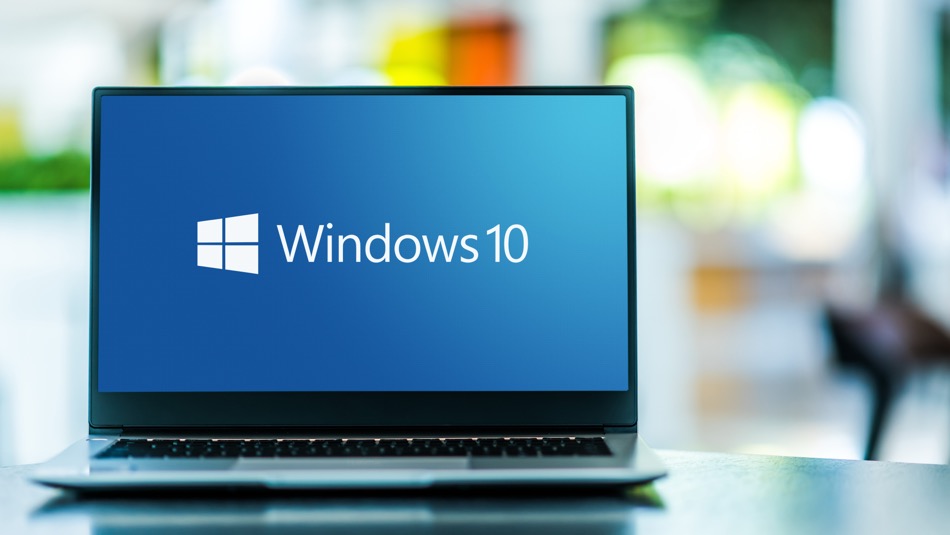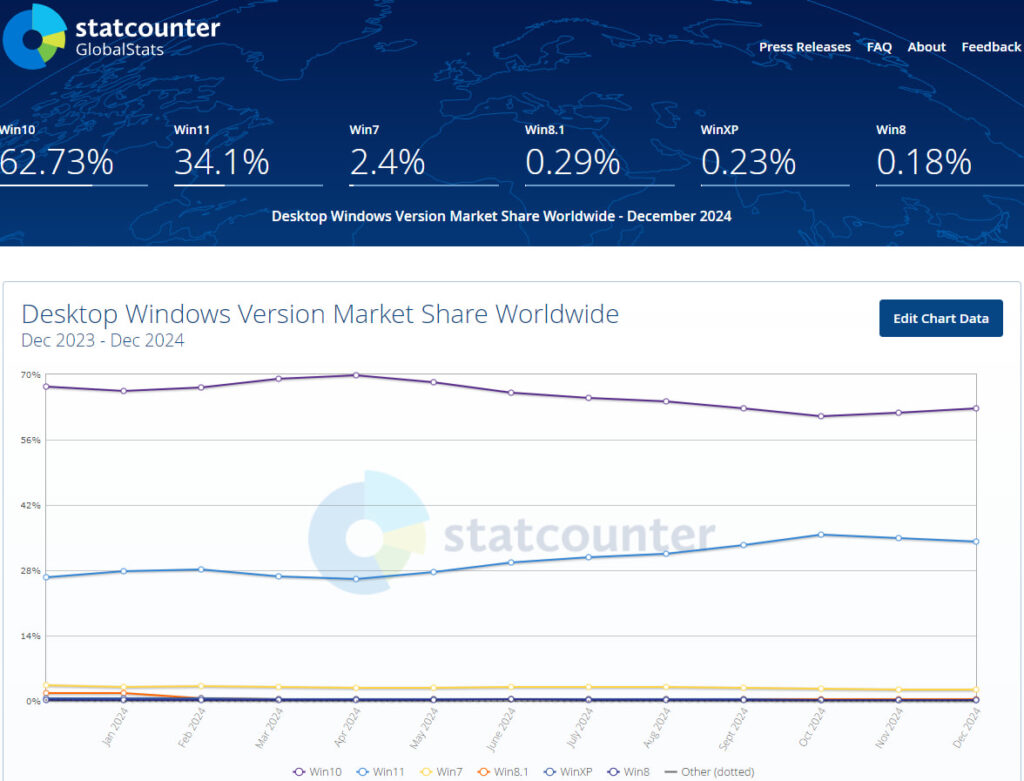
With Windows 10's end-of-support date set for October 14, 2025, cybersecurity experts at ESET warn that Germany could face a significant security crisis. Approximately 32 million Windows 10 devices, representing 65% of the country's PCs, remain on the soon-to-be-outdated operating system. ESET has urged individuals and businesses to immediately transition to newer platforms to avoid serious security vulnerabilities.
Windows 10 still dominates
Despite being nearly a decade old, Windows 10 remains the dominant operating system worldwide and across Germany. According to StatCounter, Windows 10 holds 62.73% of the global desktop OS market share as of December 2024, with Windows 11 trailing at 34.1%. According to W3Schools‘ November 2024 statistics, Windows 10 accounts for 32.5% of desktop devices compared to 36% for Windows 11. Legacy systems like Windows 7 still linger at 1%, while Linux and macOS make up 3.6% and 7.4%, respectively.

StatCounter
ESET reports that, in Germany, 33% of users (16.5 million devices) have adopted Windows 11, but many still lag behind. Alarmingly, over one million computers in Germany are still running legacy systems like Windows 8.1, Windows 7, or even Windows XP, compounding the security risks.
The situation is mirrored across the DACH region. In Austria, 63% of PCs still run Windows 10, while in Switzerland, the figure is 56%. Together, this amounts to over 35 million devices across the region relying on an OS that will lose critical security updates next year.
Thorsten Urbanski, an IT security expert at ESET, expressed concerns over the delayed migration, saying, “It is five minutes to midnight to avoid a 2025 security disaster. Cybercriminals are well aware of the situation and are likely preparing attacks for the day support ends. Waiting until October is reckless and exposes users to substantial risks.”
Experts suggest the situation is more dangerous than the end-of-support for Windows 7 in January 2020. By the end of 2019, less than 20% of users globally still relied on Windows 7, with most already upgrading to Windows 10. However, the current numbers for Windows 10 users—both in Germany and globally—are significantly higher, making this a much larger attack surface for cybercriminals. Without regular updates, hackers can easily exploit unpatched vulnerabilities to steal data, deploy ransomware, or conduct espionage.
For businesses, outdated systems not only increase security risks but also threaten compliance with modern software and hardware. Urbanski cautioned that failure to upgrade could lead to regulatory violations, reputational damage, and denial of insurance claims in the event of a breach.
Recommendations
ESET has issued clear advice for mitigating the risks posed by the transition away from Windows 10. Users need to either replace their OS with one that is actively supported or pay Microsoft for extended support.
Users, organizations, and businesses still relying on Windows 10 must migrate to Windows 11 or consider alternatives such as Linux, especially for older hardware. For those unable to meet the October 2025 deadline, Microsoft offers extended support for Windows 10 at a premium. While this service will keep systems patched temporarily, costs double annually, making it a less sustainable option in the long term. That being said, migrating away from unsupported systems is the safest and most cost-effective solution.
With nine months left until Windows 10 is exposed to novel exploits driving hacker attacks, users must ensure the operating system, firmware, and all installed software are regularly updated to minimize vulnerabilities, install security solutions to guard against emerging threats, and avoid using administrator accounts for everyday tasks. Finally, it's crucial to maintain secure backups on external drives to avoid losing valuable files during cyberattacks.






Leave a Reply